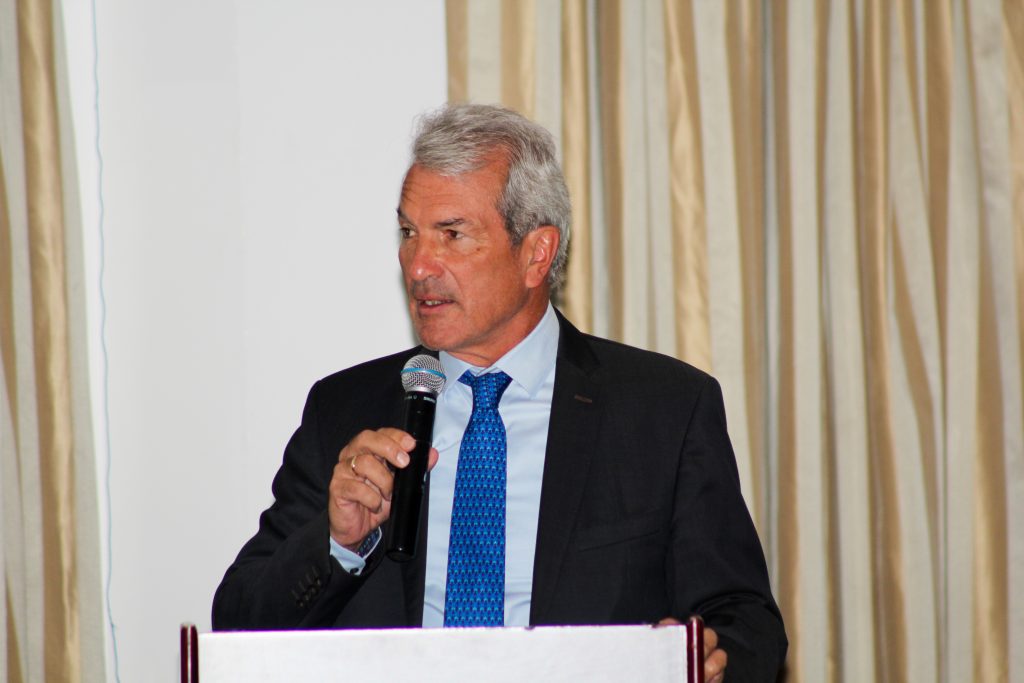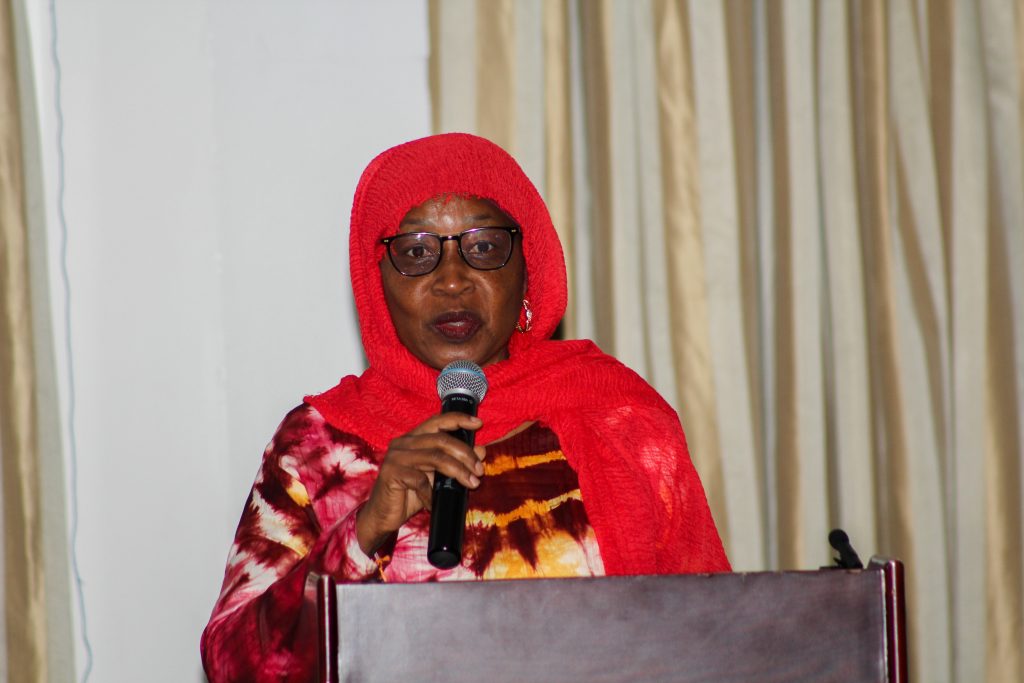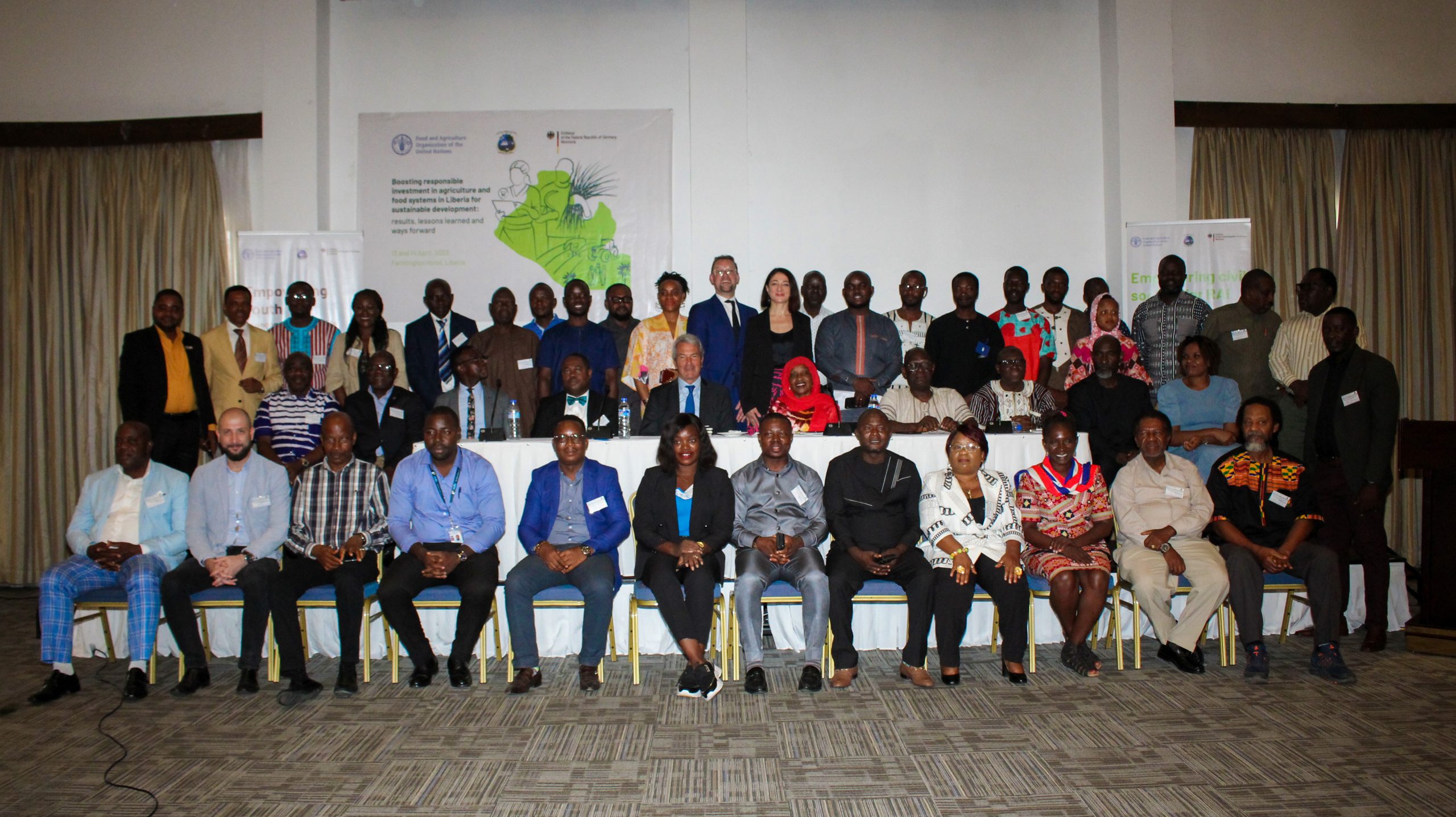The Food and Agriculture Organization of the United Nations office in Liberia, on Thursday, April 13th conducted a discussions on Agriculture Food Systems and Sustainability along with partners at a local hotel in Margibi County.
At the commencement of the high-level meeting, giving an overview on boosting responsible investment in Agriculture and Food Systems in Liberia for sustainable development His Excellency Jakob Haselhuber, Ambassador of the Federal Republic of Germany to Liberia, announced that the rate of the new global hunger index rate of undernourishment stands at 38% and the import of Liberia’s stable food is still predominant.
The Partnership between Germany and FAO has come a very long way since 2018 and Germany has remained FAO’s most important partner in Liberia and beyond on World Food Security.

Germany has also supported the capacity development program and Technical assistance, to strengthen and create an enabling environment for Responsible Agricultural Investment (RAI) in Liberia, Sierra Leone, and other areas.
According to Ambassador Haselhuber, the support was provided under the German FAO Bilateral agreement which is geared towards the United Nations Sustainable Goals. The agro sector has been earmarked as very significant and chosen as one of the ten priority sectors.
In 2015 FAO, USAID, and WFP estimated an additional annual one Billion United States Dollars is needed to be invested in Agriculture to achieve SDGs One and SDGs two.

“In Liberia, the COVID-19 pandemic and Russia’s unwarranted War against Ukraine, has led to a further increase in the prevalence of poverty and hunger. Poverty is placed at 47.6℅ while the hunger index is placed at 38.3%.
Also, Children between the ages of 0 – 5 years, still suffer from rape, and Child mortality, is still high but thanks to the Government of Liberia for contributing immensely to help curb the situation, but let it be known that Child mortality is still high” stated Ambassador Haselhuber.
Furthermore, Ambassador Haselhuber encourages the Government of Liberia, FAO, and all other individuals and stakeholders, to further collaborate which will boost responsible investment that will benefit not just the people of Liberia but all others on the planet.
Also during the program, FAO Representative to Liberia Madam Mariatou Njie, let out that the consortium on the boosting of responsible investment in Agriculture and Food Systems in Liberia, for sustainable development is being done at a very timely moment when years of progress made to reduce poverty have been jeopardized by the COVID-19 Pandemic.
“For instance according to FAO estimates, about 38.9% of Liberia’s population, is undernourished and additionally the world bank estimates that Poverty has increased substantially with rape rising to 52%. Furthermore, many workers particularly young men and women working in the Agricultural sector lost their jobs”, affirmed Madam Njie.
The key outcome of the gathering is the adoption of a tool for screening and negotiating responsible investment from concessions that would even go beyond the agriculture sector to other sectors of investment in Liberia, Sierra Leone, and globally.
Dr. Yannick Fiedler is the Capacity Development Officer at the FAO, he provides a clear understanding of the gains of the project especially the tool developed for screening of concessions for use by the National Investment Commission and other policy implementation entities of government.
“One particularly important aspect in this regard is investment and investor’s screening prior to the approval of an investment project”, Dr. Fiedler emphasized, adding; “And this is so important because most of the risks that an investment can have can be detected at the onset before any decision of the investment itself is being made. It is cost-efficient to carry out these screenings at this process to determine what investment we want and what investment we do not want and where rectification should be made and therefore avoid costly adjustments that would have to be made further down the line if these decisions had not been taken prior to approval”.

Emmanuel Logan, Is A Renowned Liberian Poet And Journalist With Over 19 Years Of Experience In Journalism. He Is Also An Economist and An Award-Winning Journalist Who Has Practiced As A Broadcaster, A TV Presenter, A Newspaper Managing Editor, And A Talkshow Host.

